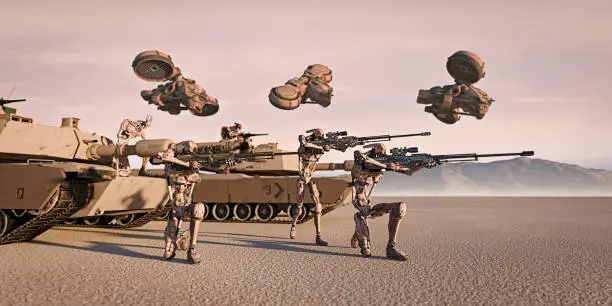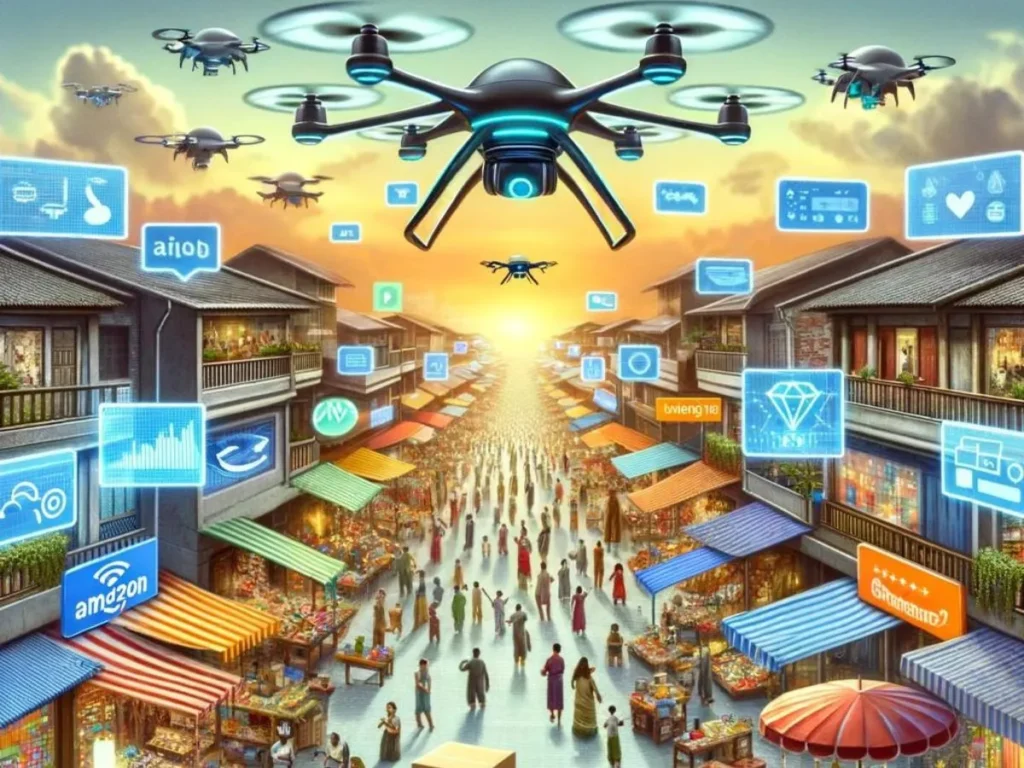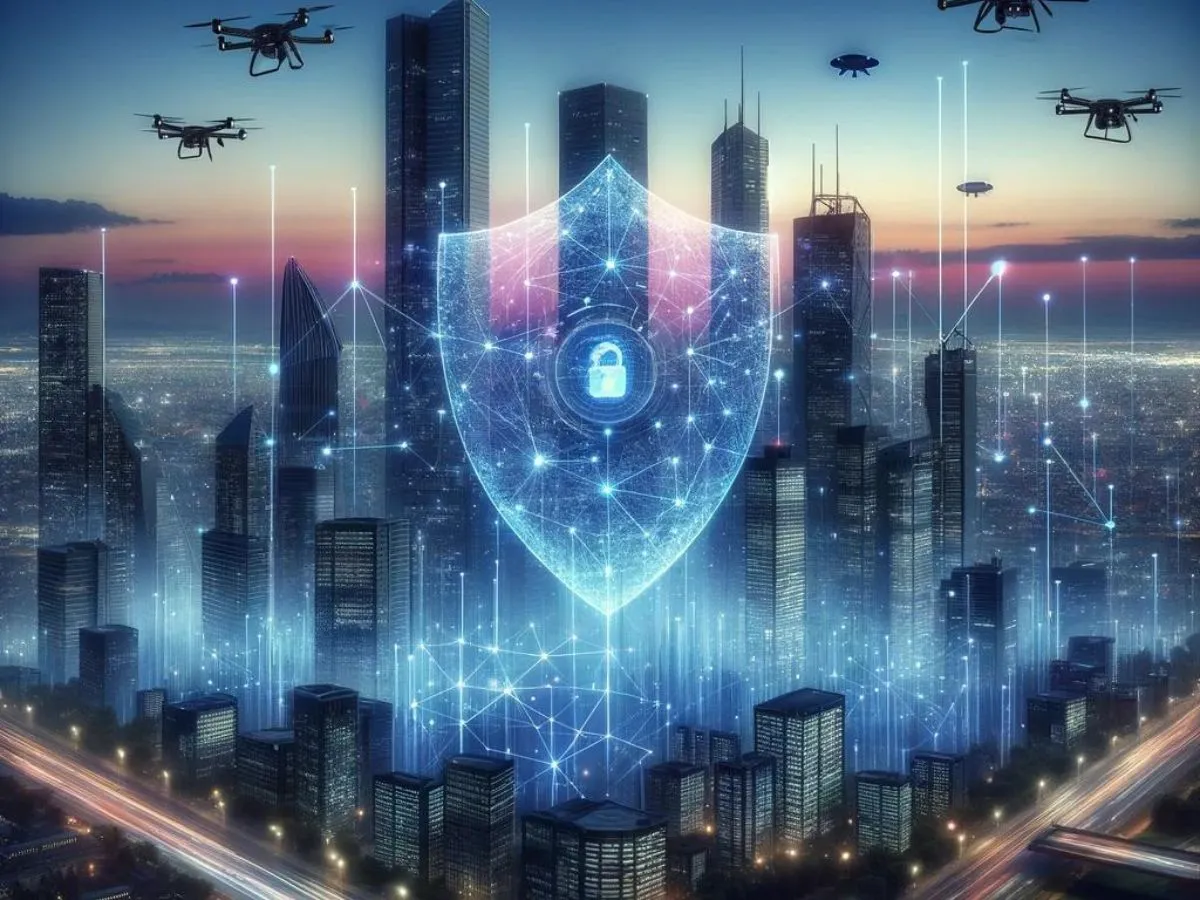In the vast expanse of the digital era, technology giants such as Google, Amazon, Facebook, and Apple have transcended their commercial origins to become central players in global security. With a combined market capitalization soaring over $5 trillion as of early 2023, these behemoths wield power that rivals, and in some cases surpasses, that of nation-states. This monumental shift has led to a scenario where “technology giants control the global security” shaping everything from cybersecurity norms to the future of warfare with their innovative technologies and vast data repositories.
The Rise of Technology Giants:
The 21st century heralded the ascension of technology companies, transforming them from mere digital service providers to pivotal actors on the global stage. Companies like Google, Amazon, Facebook, and Apple, often referred to as the “Big Four,” alongside others like Microsoft and Alibaba. Have not only revolutionized consumer behavior but have also become integral to the economy, politics, and, notably, security across the globe. Their rapid growth, fueled by innovation and strategic market domination, positioned them as central figures in the digital era’s narrative.
Economic Powerhouses: From Market Dominance to Global Influence
With market capitalizations reaching trillions, these technology giants command economic resources that rival the GDPs of entire countries. This financial clout grants them unprecedented influence over global markets, policymaking, and, significantly, the means to develop and deploy advanced technologies. Their economic dominance enables investments in cutting-edge research and development, setting the stage for breakthroughs in cybersecurity, artificial intelligence, and data analytics—tools that are now at the forefront of global security strategies.
The New Guardians of Global Security
Traditionally, the responsibility of safeguarding a nation’s security has been the sole preserve of governments and their armed forces. However, the digital age has ushered in a new paradigm where technology giants have become de facto custodians of global security. Through their control over vast amounts of data and their unparalleled technological resources, these companies play a crucial role in detecting and mitigating cyber threats, managing digital identities, and ensuring the integrity of information systems. The power wielded by these tech behemoths is immense. They have the capabilities to surveil digital footprints, thwart cyberattacks in real time, and influence cybersecurity policies. Their platforms have become the battlegrounds for ideological conflicts, with algorithms dictating the flow of information and, consequently, shaping public opinion and political outcomes.
The Pivotal Role of Technology Giants in Cybersecurity
The cybersecurity landscape is where the influence of technology giants is most palpable. With cyberattacks becoming more sophisticated, costing the global economy an estimated $6 trillion annually by 2021, according to Cybersecurity Ventures. The role of these corporations in defending against such threats has become indispensable. Their unique capabilities in data analytics and machine learning enable the detection and neutralization of cyber threats at a scale and speed that was previously unimaginable. Google’s Project Zero, for instance, represents an aggressive approach to security, aiming to identify zero-day vulnerabilities not just in their products. But in software produced by other companies. This initiative underscores a broader trend among tech giants to fortify the digital ecosystem as a whole, acknowledging that the security of one is intertwined with the security of all.
Artificial Intelligence and the Future of Warfare

Artificial intelligence (AI), powered by the vast data and computational resources of technology giants, is redefining the future of warfare and security. AI technologies are being developed to enhance threat detection, automate defense systems, and even predict security breaches before they occur. The use of AI in drone technology, surveillance, and autonomous weapons systems is a glimpse into the future of combat, which will be characterized by speed, precision, and minimal human intervention.
Yet, the advancement of AI in security and warfare also introduces ethical dilemmas and the potential for a new arms race. The deployment of autonomous weapons and surveillance systems by state actors, is facilitated by the technological prowess of private companies. Underscores the need for global norms and regulations to govern the use of AI in military and security applications.
Data Privacy and the Individual:
At the heart of the influence wielded by technology giants is their control over data. Personal information, collected on an unprecedented scale, serves as both a tool for innovation and a potential weapon. The commodification of personal data raises significant concerns about privacy, consent, and the potential for surveillance capitalism, where individuals’ data can be used to monitor, influence, and even control their behavior.
The European Union’s General Data Protection Regulation (GDPR) and similar initiatives worldwide are attempts to reign in the power of tech giants and safeguard individuals’ privacy. These regulations are critical in ensuring that the contributions of technology companies to global security do not come at the expense of fundamental human rights.
Technology Giants and Emerging Markets

As technology giants expand their operations into emerging markets, they bring both opportunities and challenges. On one hand, their technologies can enhance access to information, improve public services, and bolster local economies. On the other, there are concerns about digital colonialism, where the dominance of foreign tech companies undermines local cultures, economies, and digital sovereignties. Navigating this delicate balance is crucial for ensuring that the expansion into emerging markets contributes positively to global security and development.
The disparity in access to digital technologies between developed and developing countries. Technology giants, primarily based in affluent nations, may inadvertently exacerbate this divide, concentrating security advancements in regions already well-protected. Bridging this gap requires concerted efforts to ensure equitable access to security technologies. Enabling all nations to defend against digital threats effectively.
The Role of Media in Shaping Public Opinion
Media coverage plays a crucial role in shaping public perception of technology giants and their impact on global security. Balanced, well-informed reporting is vital for fostering a nuanced understanding of the issues at hand. Avoiding sensationalism, and promoting informed public dialogue. As both a subject of media scrutiny and a platform for information dissemination. Big tech must navigate complex interactions with the media to ensure constructive engagement with the public.
Collaboration for a Secure Future for Technology Giants Control the Global Security
The challenges of global security cannot be tackled by any single entity alone. Partnerships between technology giants, governments, civil society, and international organizations are essential for developing comprehensive, effective security solutions. Such collaborations can leverage the strengths of each stakeholder, from the technological expertise of big tech to the regulatory powers of governments. To address complex security challenges in a coordinated manner. The future of global security in the digital era is a shared responsibility, requiring ongoing commitment, innovation, and cooperation from all sectors of society. Technology giants, with their significant influence and resources, have a pivotal role to play in shaping this future. By working together with stakeholders across the globe, we can forge a path towards a secure, equitable digital world for generations to come.
Conclusion
The influence of technology giants on the landscape of global security is undeniable. Through their innovations in cybersecurity, their shaping of policies and norms, and their foray into military technologies. These companies have become central actors in defining the future of global security. However, with great power comes great responsibility. As they navigate this uncharted territory, they need ethical leadership, transparent practices, and collaborative frameworks. That involves a broad spectrum of stakeholders has never been more critical. The future of global security will depend on the ability of technology giants to balance their commercial interests with their responsibilities.
Frequently Asked Questions:
1. How do technology giants control global security?
Technology giants influence global security through their control over vast amounts of data, and advanced cybersecurity measures. The development of technologies like artificial intelligence (AI) and surveillance systems. They play a critical role in detecting and thwarting cyber threats, influencing security policies, and shaping the future.
2. What is technological sovereignty, and why does it matter?
Technological sovereignty refers to a nation’s ability to control its own technology ecosystem. Including data, infrastructure, and digital services, without undue influence from foreign entities. It matters because it ensures national security, economic independence, and the protection of citizens’ rights in an increasingly digital world.
3. Can individual privacy coexist with modern security measures?
Yes, individual privacy can coexist with modern security measures, but it requires a delicate balance. Implementing robust data protection regulations, ensuring transparency in the use of surveillance technologies. Fostering public-private partnerships are crucial step in ensuring that security needs do not override privacy rights.

